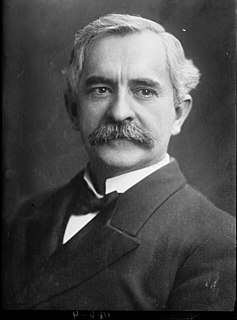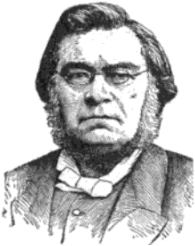A Quote by Maximus the Confessor
Whoever sees in himself the traces of hatred toward any man on account of any kind of sin is completely foreign to the love of God. For love toward God does not at all tolerate hatred for man.
Related Quotes
The person who loves God cannot help loving every man as himself, even though he is grieved by the passions of those who are not yet purified. But when they amend their lives, his delight is indescribable and knows no bounds. A soul filled with thoughts of sensual desire and hatred is unpurified. If we detect any trace of hatred in our hearts against any man whatsoever for committing any fault, we are utterly estranged from love for God, since love for God absolutely precludes us from hating any man.
As God illumines all people equally with the light of the sun, so do those who desire to imitate God let shine an equal ray of love on all people. For wherever love disappears, hatred immediately appears in its place. And if God is love, then hatred is the devil. Therefore as one who has love has God within himself, so he who has hatred within himself nurtures the devil within himself.
A passion is a contranatural movement of the soul or an irrational love, or an blindfold hatred toward any material thing, or because of it: for example, for food, or for women, or for riches, or for worldly glory, or any other sensible thing; or for the sake of such things, as in a senseless hatred for someone on account of the things mentioned above.
Condemn no man for not thinking as you think. Let every one enjoy the full and free liberty of thinking for himself. Let every man use his own judgment, since every man must give an account of himself to God. Abhor every approach, in any kind or degree, to the spirit of persecution, if you cannot reason nor persuade a man into the truth, never attempt to force a man into it. If love will not compel him to come, leave him to God, the judge of all.
When you want to direct someone toward the good, first put him at peace bodily and honor him with words of love. For nothing inclines such a man to shame and induces him to cast of his vice and be changed for the better as do bodily goods and honor, which he sees in you. Then, with love tell him a word or two, and do not be inflamed with anger toward him. Do not let him see any cause of enmity toward you. For love does not know how to lose its temper.
The glory of God is the living man, but the life of man is the vision of God', says St. Irenaeus, getting to the heart of what happens when man meets God on the mountain in the wilderness. Ultimately, it is the very life of man, man himself as living righteously, that is the true worship of God, but life only becomes real life when it receives its form from looking toward God.
Man depends on God for all things: God depends on man for one. Without man's love God does not exist as God, only as creator, and love is the one thing no one, not even God himself, can command. It is a free gift or it is nothing. And it is most itself, most free, when it is offered in spite of suffering, of injustice, and of death . . . The justification of the injustice of the universe is not our blind acceptance of God's inexplicable will, nor our trust in God's love, his dark and incomprehensible love, for us, but our human love, notwithstanding anything, for him.
By definition, if man contributes anything toward acceptance by God, he loses everything. God expects man to be the recipient, not the originator. Jesus paid it all, not 99% of it. Paul wrote, "For by grace are ye saved through faith; and that not of yourselves: it is the gift of God: Not of works, lest any man should boast"
...it is presumptuous ridicule of God if someone thinks that only the person who desires great wealth chooses mammon. Alas, the person who insists on having a penny without God, wants to have a penny all for himself. He thereby chooses mammon. A penny is enough, the choice is made, he has chosen mammon; that it is little makes not the slightest difference. The love of God is hatred of the world and love of the world hatred of God.
Holiness provokes hatred. The greater the holiness, the greater the human hostility toward it. It seems insane. No man was ever more loving than Jesus Christ. Yet even His love made people angry. His love was a perfect love, a transcendent and holy love, but HIs very love brought trauma to people. This kind of love is so majestic we can't stand it.
We have accounts of the deification of men in pagan mythology. But I do not remember any account of a god becoming a man, to help man. Whoever heard of Jupiter or Mars or Minerva coming down and attempting to bear the burdens of men? The gods were willing enough to receive the gifts of men, but Christianity is unique in the fact that our God became a man with human infirmity and emptied Himself of the glory of heaven, in order that He might take upon Himself the sins, diseases and weakness of our humanity.
Still, a prince should make himself feared in such a way that if he does not gain love, he at any rate avoids hatred; for fear and the absence of hatred may well go together, and will be always attained by one who abstains from interfering with the property of his citizens and subjects or with their women.





























